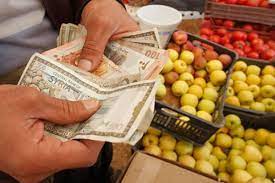The price of materials and commodities, particularly basic supplies, is not stable in Syria, which undergoes quick inflation. The government intends to grant broader powers to market controllers. However, the chances of their success in controlling markets are low given the way they operate and collude with traders.
The price of a packet of ‘mate’ increases every day between 50 and 100 Syrian pounds, crushed lentils witnessed an increase from 2,800 to 4,000 Syrian pounds in one day, chickpeas increased from 2,500 lira to 3,800 Syrian pounds, rice increased 300 Syrian pounds in one day, and a box containing 6 pieces of soap increased in price from 900 to 2,800 Syrian pounds, according to al-Watan newspaper’s observations.
The director of consumer protection at the Ministry of Domestic Trade, Mohammed Marwan Bagh, said that there are “new instructions that give the supply controller the power to regulate any violation he witnesses or hear of, at any time, even if the citizen complains.”
Read Also: Seven Million Liras Per Night in Private Hospitals in Damascus
Commenting on the high prices of coffee, he pointed out that “the prices of coffee have increased globally and no official bulletin has been issued for the price of coffee yet. Traders have no right to deviate from the price of the bulletin issued by the ministry”.
Coffee is out of reach for most Syrians and is limited to the rich. The poor are trying to adapt without coffee, their favorite drink because their monthly salary is not even enough to purchase 1.5 kilograms of coffee.
The price of one kilogram of good quality coffee reached 50,000 Syrian pounds, while other lower qualities range from 20,000 to 50,000 Syrian pounds.
Increased prices and a low level of income below the poverty line have pushed most Syrians to stop buying some products, including red and white meat, and most fruits and olive oil.
This article was translated and edited by The Syrian Observer. The Syrian Observer has not verified the content of this story. Responsibility for the information and views set out in this article lies entirely with the author.


